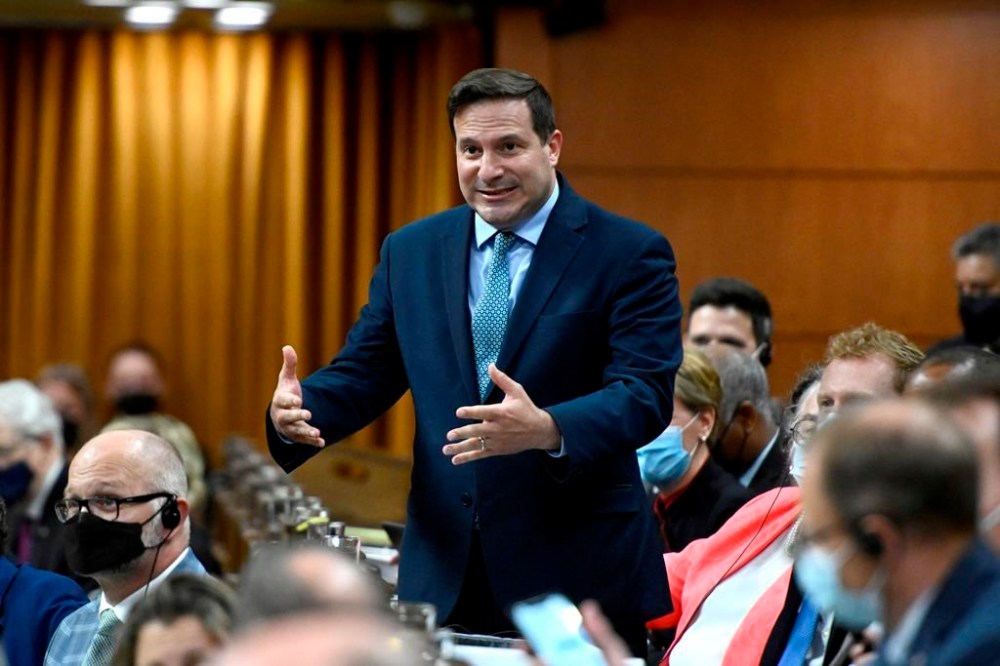Ottawa aims to table legislation this fall making Indigenous policing essential
Advertisement
Read this article for free:
or
Already have an account? Log in here »
To continue reading, please subscribe:
Monthly Digital Subscription
$0 for the first 4 weeks*
- Enjoy unlimited reading on winnipegfreepress.com
- Read the E-Edition, our digital replica newspaper
- Access News Break, our award-winning app
- Play interactive puzzles
*No charge for 4 weeks then price increases to the regular rate of $19.00 plus GST every four weeks. Offer available to new and qualified returning subscribers only. Cancel any time.
Monthly Digital Subscription
$4.75/week*
- Enjoy unlimited reading on winnipegfreepress.com
- Read the E-Edition, our digital replica newspaper
- Access News Break, our award-winning app
- Play interactive puzzles
*Billed as $19 plus GST every four weeks. Cancel any time.
To continue reading, please subscribe:
Add Free Press access to your Brandon Sun subscription for only an additional
$1 for the first 4 weeks*
*Your next subscription payment will increase by $1.00 and you will be charged $16.99 plus GST for four weeks. After four weeks, your payment will increase to $23.99 plus GST every four weeks.
Read unlimited articles for free today:
or
Already have an account? Log in here »
Hey there, time traveller!
This article was published 21/09/2022 (1177 days ago), so information in it may no longer be current.
OTTAWA – Public Safety Minister Marco Mendicino is promising to “work around the clock” to table legislation this fall that would declare Indigenous policing an essential service.
Doing so would fulfil a commitment Prime Minister Justin Trudeau made years ago to First Nations leaders.
Lennard Busch, the executive director of the First Nations Chiefs of Police Association, says as it stands,their policing services are treated as add-ons within the country’s existing model.

That’s why, he says, legislation is needed to formally recognize that First Nations policing is as necessary as a force such as the RCMP,which has a structure and operational baseline outlined in law.
“It’s never soon enough for us,” he said in a recent interview.
Earlier this month, a stabbing rampage in Saskatchewan left 11 people dead, including one of the suspects, and 18 others injured, many of them on James Smith Cree Nation. A second suspect died after being arrested days later. The event has amplified calls for more Indigenous-led policing.
Wally Burns, the nation’s chief, has been among the voices calling for tribal policing.
There are 35 First Nations police services across the country, and Busch says he sees a growing demand for more, having fielded dozens of calls from communities and tribal councilsinterested in starting their own.
He says funding remains a major issue. Currently, a First Nations police service receives funding through a program created in 1991, in which costs are shared with the province.
The Liberal government announced in 2018 that it would spend almost $300 million over five years on policing in First Nations and Inuit communities, saying at the time that represented a historic increase.
Busch says that money helped fill staffing shortages.
The federal Department of Public Safety has flagged problems with the 1991 funding program. It published a report in February that found the amount budgeted for it has led to an underfunding of First Nations policing agreements, which has limited what kind of services officers could offer communities and heaped more stress onto existing staff.
The report also concluded that around one-third of First Nations and Inuit communities have been unable to access this pool of money.
The Assembly of First Nations has been advocating for reforms to First Nations policing. Former national chief Perry Bellegarde has said it was unacceptable that communities were expected to set up their own police services without a structure enshrined in law and sufficient funding.
Busch said the process of setting up a force is complex and typically takes years. On top of the money needed to hire and retain staff, he says there is also a need for adequate funding to outfit officers with the proper technology.
He said there is also no one-size-fits-all approach for a First Nation to follow if it wants to establish a force of its own, which is particularly difficult for those with smaller populations.
“That is a very high-risk thing.”
Mendicino says the government is developing the legislation with Indigenous partners and that he spent the summer meeting about the coming bill.
“We’re very eager to table this legislation.”
This report by The Canadian Press was first published Sept. 21, 2022.



